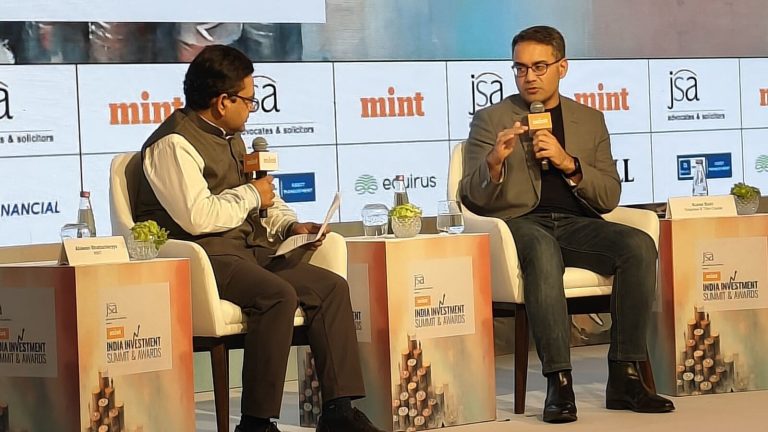It is much easier to build businesses today than it was more than a decade ago as the penetration of smartphones and internet usage has resulted in deeper markets and the emergence of new segments, said Kunal Bahl, co-founder of Snapdeal and Titan Capital and promoter of Unicommerce.
“Ten years ago in e-commerce, there was one homogeneous lump of consumers—mostly urban, affluent, and connected. Now, in every possible segment that you can imagine, there are large pools of consumers of varying income, geography, age, usage patterns, and preferences, ” Bahl said at Mint India Investment Summit and Awards 2025 on Friday.
Moreover, now it is about the founder’s ingenuity to come up with the ideas to go after these segments as opposed to questioning if the market exists or not, Bahl noted.
“With the per-capita GDP in some states going up, many businesses are getting there as well in terms of hitting inflection points,” Bahl said.
Bahl founded online shopping platform Snapdeal (now AceVector) in 2010 with Rohit Bansal. The duo launched Titan Capital, an early-stage venture investment firm, in 2015 and has backed several notable startups such as Urban Company, OfBusiness, Ola Cabs, and Razorpay.
Speaking about the rate of failure among startups, Bahl said the number will be disparate. However, it is important for founders to invest time into sufficient market research to build strong businesses.
“Founders are going to spend up to 15-20 years building their businesses, so they cannot decide in one weekend. I always encourage founders to spend 5% of their time deciding what they’re going to build. The worst thing is to get committed to an idea very quickly and fall out of love with it when you realize how hard it is,” Bahl added.
There’s always a lot of excitement and euphoria when one starts a venture, but it is followed by this “valley of death” filled with perpetual rejections. “Resilience gets lost in the valley of death when you don’t have core conviction behind why you’re in this business,” Bahl noted, urging founders to take their time to polish their ideas.
Rise of quick commerce
Bahl called the rise of quick commerce a “deja vu” moment of his earlier days of building e-commerce platform Snapdeal. “As someone building in the e-commerce space for more than a decade, it is actually a deja vu. When I see the rapid consumer adoption, advertising, and media discourse, it reminds me of the e-commerce boom ten years ago.”
However, Bahl believes the rise of quick commerce doesn’t necessarily signify the end of retail. “Even at that point in time [e-commerce boom], there was a lot of discussion around it being the end of retail. But nothing ended, and they [offline and online retail] figured out a way to co-exist as the shopping experiences and drivers of purchase are different.”
Bahl noted that it is too early in the journey for quick commerce to decide whether it will succeed or fail, however, there are some high-density pockets where kirana stores are facing pain, Bahl said at the event in Mumbai.
Emerging sectors
Speaking about sectors that have a lot of potential, Titan Capital’s Bahl said technologies like artificial intelligence (AI) have emerged strong.
“After the dawn of the internet in the late 90s, we’re seeing the most significant tectonic plate shifts in technology. AI is not a wave; it’s a new way of doing things. It is here to stay. Almost every business henceforth will have to adapt to the new way of building businesses. It’s going to be a very exciting world we will live in,” Bahl added.
Direct-to-consumer (D2C) brands also have the potential to bring about immense disruption. “Most people think the D2C brand story is now done, I think it is just getting started. India is highly under-penetrated in terms of brands that can speak to specific audiences in an authentic manner.”
Indian consumers are also now more open to trying brands that are not heavily advertised on television, indicating growing trust in new-age consumer businesses. New-age brands are going to give a real fight to traditional brands and a tremendous amount of value is going to be created,” he added.
Bahl also noted that the Indian market structure has witnessed a change with more people showing willingness to pay for content, thanks to the ubiquity of smartphones, payment systems like Unified Payment Interface (UPI), and a general sense of familiarity with consumption patterns. “The next generation of content and media companies will create small plans like ₹5 and ₹10. These businesses can become very large businesses in the future.”
Catch all the Business News , Corporate news , Breaking News Events and Latest News Updates on Live Mint. Download The Mint News App to get Daily Market Updates.
MoreLess


